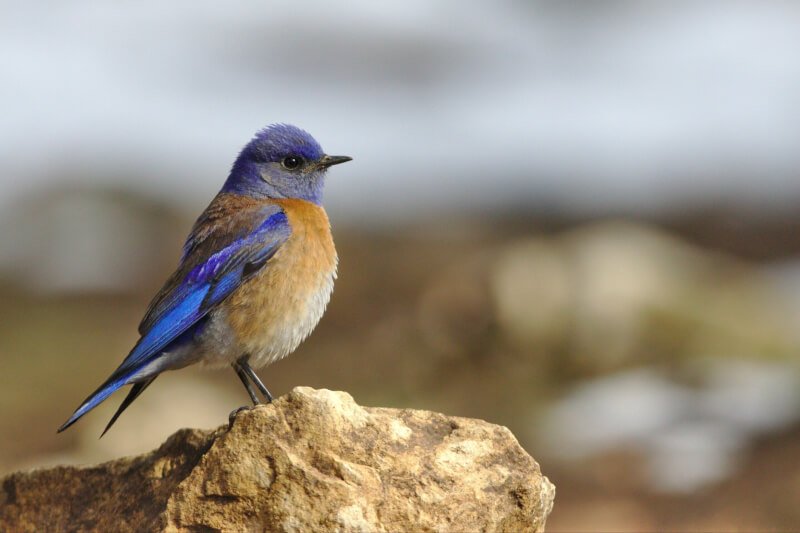Are you a proud bird owner looking to provide the best care for your feathered friend? Look no further! In this article, you will discover a compilation of top tips to create a healthy environment for your beloved bird. From ensuring the right nutrition to maintaining a clean living space, these simple yet effective suggestions will help you ensure the well-being and happiness of your avian companion. So, let’s dive in and explore the secrets of creating a thriving environment for your bird!
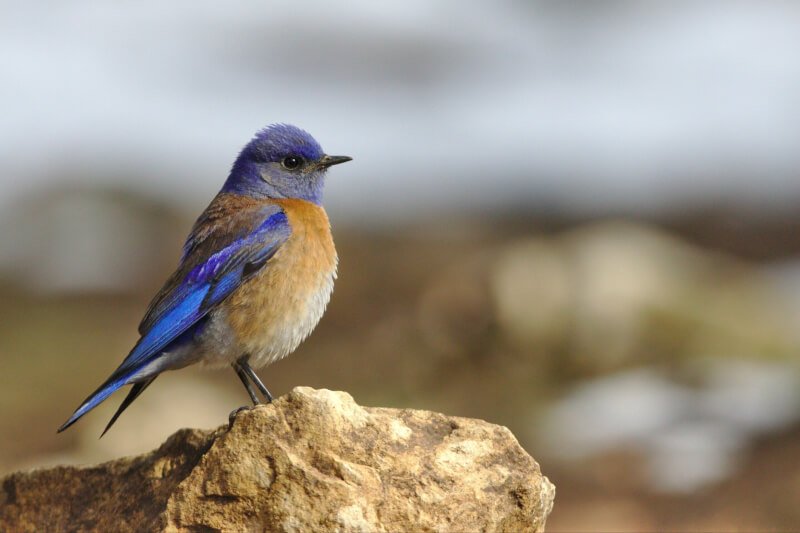
Tips for Cage Selection
Choose the Right Size Cage
When selecting a cage for your bird, it is essential to consider the size of the cage. A cage should provide enough space for your bird to move around comfortably. This will ensure that your bird has enough room to spread its wings and engage in natural behaviors. A good rule of thumb is to choose a cage that is at least twice the wingspan of your bird. This will allow your bird to fly from one side of the cage to the other without any restrictions.
Consider Bar Spacing
Another important factor to consider when selecting a cage is the bar spacing. The spacing between the bars should be small enough to prevent your bird from escaping or getting its head stuck between the bars. At the same time, it should be large enough to allow for good airflow and visibility. It is recommended to choose a cage with bar spacing that is appropriate for the size and species of your bird.
Opt for a Cage with Vertical Bars
Vertical bars are ideal for bird cages as they provide ample opportunities for climbing and perching. Birds naturally climb and explore their surroundings, so having vertical bars allows them to engage in these natural behaviors. Additionally, vertical bars provide a more secure and stable structure for the cage, ensuring the safety of your bird.
Ensure Sturdiness of the Cage
It is crucial to select a cage that is sturdy and well-built. Birds can be quite active and may engage in climbing, hanging, and in some cases, even chewing on the cage bars. Therefore, it is essential to choose a cage made from durable materials that can withstand the wear and tear of your bird’s activities. A sturdy cage will provide a safe and secure environment for your feathered friend.
Location of the Cage
Avoid Drafty Areas
When choosing a location for your bird’s cage, it is important to avoid areas with drafts. Drafts can cause your bird to become chilled, leading to health issues. Make sure to place the cage away from windows, doors, and air vents to minimize the risk of drafts.
Keep the Cage in a Well-Lit Room
Birds thrive in a well-lit environment. Natural daylight provides essential Vitamin D and promotes a sense of well-being. Ensure that your bird’s cage is placed in a room with plenty of natural light. If natural light is limited, consider providing artificial full-spectrum lighting specifically designed for birds.
Avoid Direct Sunlight
While it is important to have a well-lit room, it is equally important to avoid direct sunlight. Direct sunlight can cause overheating and be harmful to your bird’s health. Place the cage away from direct sunlight and provide shade if necessary. This will create a comfortable and safe environment for your bird.
Maintain a Comfortable Temperature
Birds are sensitive to temperature changes, so it is crucial to maintain a comfortable temperature in the room where the cage is located. Avoid placing the cage in areas that are prone to extreme temperature fluctuations, such as near heating vents or air conditioning units. Aim for a temperature range between 68-78 degrees Fahrenheit (20-25 degrees Celsius) to keep your bird happy and healthy.
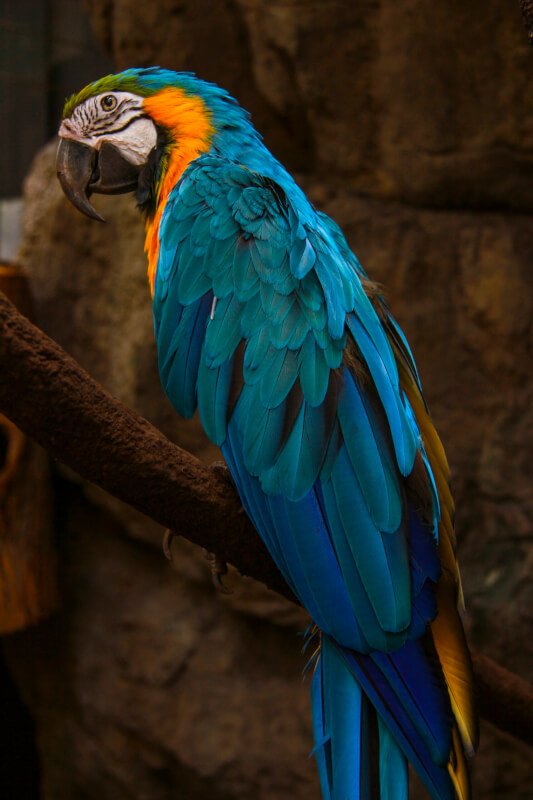
Proper Cage Placement
Avoid High-Traffic Areas
Birds prefer a peaceful environment where they can feel safe and secure. Avoid placing the cage in high-traffic areas of your home, such as hallways or near doorways. Constant movement and noise can cause stress and anxiety in your bird. Choose a quiet and calm area where your bird can observe its surroundings without feeling overwhelmed.
Keep it at Eye Level
Placing the cage at eye level is beneficial for both you and your bird. It allows you to interact with your bird at its eye level, fostering a closer bond and facilitating socialization. Additionally, this placement allows your bird to feel more secure and included in the family’s daily activities.
Maintain Optimum Height
Ensure that the cage is at a safe and comfortable height for both you and your bird. Placing it too low can make it difficult for you to interact with your bird, while placing it too high can make your bird feel isolated. Find a middle ground where you can easily access the cage for cleaning and maintenance, while also allowing your bird to comfortably observe its surroundings.
Essential Cage Accessories
Provide Perches of Various Sizes
Perches play a vital role in maintaining your bird’s foot and leg health. It is essential to provide perches of different sizes and textures to promote proper foot exercise and prevent foot problems. Natural wood perches, varying in diameter, offer great variety and simulate a natural environment for your bird.
Include Toys for Mental Stimulation
Birds are highly intelligent creatures that require mental stimulation to prevent boredom and enhance their overall well-being. Include a variety of bird-safe toys in the cage to keep your bird mentally engaged. Toys that encourage foraging behavior or provide opportunities for problem-solving are particularly beneficial.
Install Food and Water Dishes
Food and water dishes are essential accessories for your bird’s cage. Opt for stainless steel or ceramic dishes that are easy to clean and non-toxic. Position the dishes in a way that prevents your bird from soiling its food and water, ensuring optimal hygiene.
Place a Grit Dish or Calcium Supplement
Depending on your bird species, providing a grit dish or calcium supplement may be beneficial for their digestive health. Grit helps birds break down food in their gizzard, while calcium supplements are essential for maintaining strong bones and egg production in certain species. Consult with a veterinarian to determine if these supplements are necessary for your bird’s specific needs.
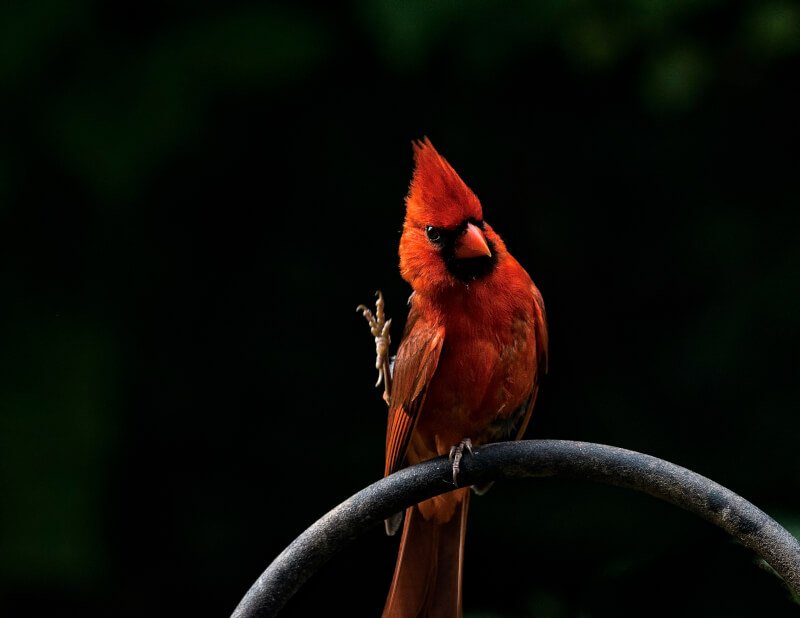
Nutritious Diet
Offer a Balanced Pellet-Based Diet
A balanced pellet-based diet is a fundamental aspect of your bird’s overall health and well-being. Pellets provide the necessary nutrients and vitamins that may be lacking in a seed-only diet. Choose high-quality pellets specifically formulated for your bird’s species and age. Gradually introduce pellets into your bird’s diet, while reducing seed intake to ensure a smooth transition.
Add Fresh Fruits and Vegetables
Fresh fruits and vegetables are essential for providing a varied and nutritious diet for your bird. These colorful foods contain essential vitamins, minerals, and antioxidants to support your bird’s immune system and overall health. Introduce a variety of fruits and vegetables gradually, ensuring they are safe and appropriate for your bird’s species.
Provide Protein-Rich Foods
Protein is an essential component of a bird’s diet, particularly for growing birds or those that engage in a lot of physical activity. Offer protein-rich foods such as cooked eggs, cooked chicken, or legumes in moderation. Consult with a avian veterinarian to determine the appropriate amount of protein for your bird’s specific needs.
Avoid Toxic Foods
Some foods can be toxic to birds and should be avoided at all costs. These include chocolate, caffeine, avocado, onions, garlic, and alcohol. Ensure that you are familiar with the list of toxic foods for birds and take necessary precautions to prevent accidental ingestion.
Promoting Exercise and Mental Stimulation
Encourage Flight Time Outside the Cage
Birds are born to fly, and regular exercise is crucial for their physical and mental well-being. Allow your bird supervised flight time outside the cage in a safe and secure area. Ensure that all windows and doors are closed, and there are no potential hazards that could harm your bird.
Provide Bird-Safe Toys for Physical Activity
Toys that encourage physical activity are an excellent way to keep your bird active and healthy. Choose toys that allow your bird to climb, swing, or engage in other natural behaviors. Providing variety in toys will keep your bird mentally stimulated and prevent boredom.
Offer Puzzle Toys for Mental Stimulation
Puzzle toys are a great way to challenge your bird’s cognitive abilities and provide mental stimulation. These toys require problem-solving skills, such as manipulating objects to access a treat. Rotate different puzzle toys to keep your bird engaged and prevent it from losing interest.
Rotate Toys to Prevent Boredom
Birds, like humans, can get bored with the same toys day after day. To keep your bird entertained, rotate the toys in the cage regularly. Introduce new toys and remove ones that your bird has lost interest in. This will prevent boredom and maintain your bird’s mental and emotional well-being.
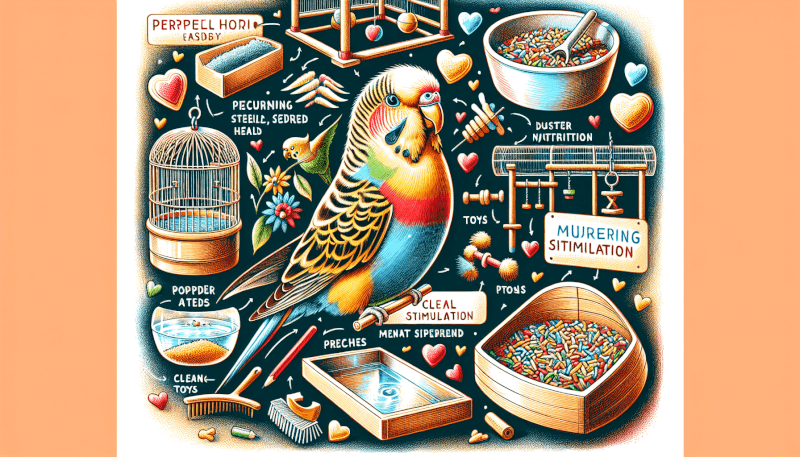
Maintaining Optimal Hygiene
Clean the Cage Regularly
Maintaining a clean and hygienic cage is crucial for your bird’s health. Regularly remove any uneaten food, droppings, or debris from the cage. Wipe down the bars, perches, and accessories with bird-safe cleaning products. Deep clean the cage at least once a month, ensuring that all surfaces are thoroughly cleaned and disinfected.
Provide Fresh Water Daily
Clean and fresh water should always be available for your bird. Change the water in the cage daily, and clean the water dish thoroughly to prevent bacterial growth. Avoid using any additives or supplements in the water unless otherwise recommended by a veterinarian.
Clean and Sanitize Food Dishes
Food dishes can harbor bacteria if not cleaned properly. Wash food dishes after each meal, removing any leftover food or debris. Use hot water and mild dish soap to clean the dishes thoroughly. Rinse well and ensure they are completely dry before reusing.
Dust Bathing for Certain Bird Species
Some bird species, such as parrots, engage in dust bathing to keep their feathers clean and healthy. Provide a shallow dish with a suitable dusting medium, such as a commercially available bird dusting powder or cornstarch. Allow your bird supervised access to the dust bath, ensuring they do not inhale excessive dust.
Regular Veterinary Care
Schedule Annual Check-ups
Regular veterinary check-ups are crucial for the overall health and well-being of your bird. Schedule annual examinations with an avian veterinarian to monitor your bird’s health, check for any underlying medical conditions, and receive vaccinations if needed. Regular check-ups will help detect potential health issues early on and ensure that your bird receives timely and appropriate treatment.
Consult an Avian Veterinarian
Birds have specific dietary and healthcare needs that may differ from other pets. It is essential to consult with an avian veterinarian who specializes in bird care. They can provide expert advice on diet, behavior, and health management specific to your bird’s species.
Vaccinations and Preventive Care
Some bird species may require specific vaccinations or preventive care measures to protect against common bird diseases. Consult with your avian veterinarian to determine if your bird requires any vaccinations or preventive medications, such as flea or parasite treatments.
Monitor Signs of Illness
As a responsible bird owner, it is important to monitor your bird for any signs of illness or changes in behavior. Birds are masters at hiding signs of illness, so it is crucial to be vigilant and aware of any abnormal indications. Common signs of illness include decreased appetite, changes in droppings, lethargy, sneezing, or changes in feather appearance. If you notice any concerning symptoms, contact your avian veterinarian for guidance and support.
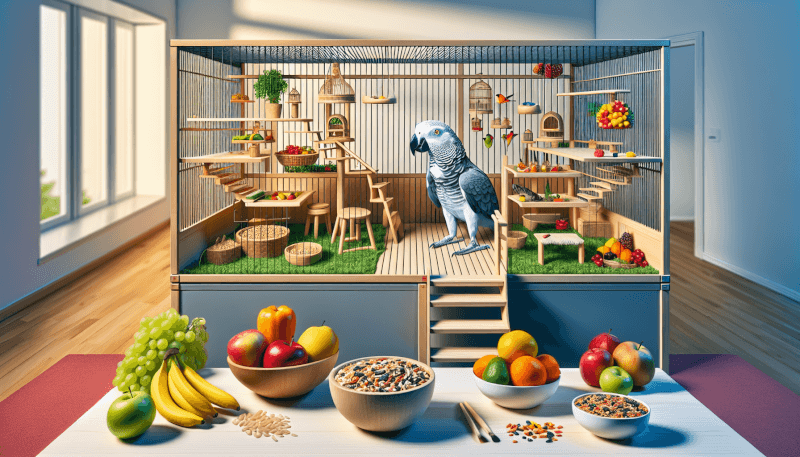
Social Interaction and Enrichment
Spend Quality Time with Your Bird
Birds are social creatures and require regular interaction and companionship. Set aside dedicated time each day to spend with your bird, engaging in activities such as talking, gentle petting, or training sessions. Bonding with your bird will strengthen your relationship and ensure its emotional well-being.
Offer Socialization with Other Birds
If appropriate for your bird’s species and temperament, consider providing opportunities for socialization with other birds. This can be in the form of supervised playdates, aviary visits, or introducing a compatible bird companion. Social interaction with fellow birds can provide mental stimulation and a sense of belonging for your feathered friend.
Expose to Different Environments
Enrich your bird’s life by exposing it to different environments and experiences. Take your bird outside for supervised outings, allowing it to experience nature and new surroundings. Introduce new toys, perches, or even rearrange the cage periodically to simulate a dynamic and stimulating environment.
Engage in Training Sessions
Training sessions are a fantastic way to stimulate your bird’s mind and reinforce positive behaviors. Teach your bird simple commands, such as stepping up or target training, using positive reinforcement techniques. Training not only provides mental stimulation but also strengthens the bond between you and your bird.
Creating a Calm Environment
Avoid Loud Noises and Excessive Music
Birds have sensitive hearing, and exposure to loud noises or excessive music can cause stress and anxiety. Avoid playing loud music or having loud conversations near your bird’s cage. Opt for calming and soothing background sounds, such as soft classical music or nature sounds.
Minimize Exposure to Tense Situations
Birds are highly perceptive and can easily pick up on tense or stressful situations. Minimize exposure to arguments, yelling, or any other stressful events in your bird’s presence. Create a peaceful and harmonious environment to ensure your bird feels safe and secure.
Provide a Safe Retreat
Birds benefit from having a safe retreat within their cage. This can be in the form of a cozy hiding spot, such as a covered area or a small tent-like structure. Having a retreat allows your bird to retreat to a safe space when it feels overwhelmed or stressed.
Maintain a Regular Routine
Birds thrive on routine and predictability. Establish a regular daily routine for your bird, including consistent feeding times, playtime, and rest periods. This will provide a sense of security and stability for your bird, reducing stress and promoting a calmer environment.
By following these tips, you can provide a healthy and enriching environment for your bird, ensuring its overall well-being and happiness. Remember, your bird’s welfare is dependent on your care and attention, so make sure to dedicate time and effort to meet its physical, emotional, and mental needs. Enjoy the joy and companionship that your feathered friend brings into your life!

